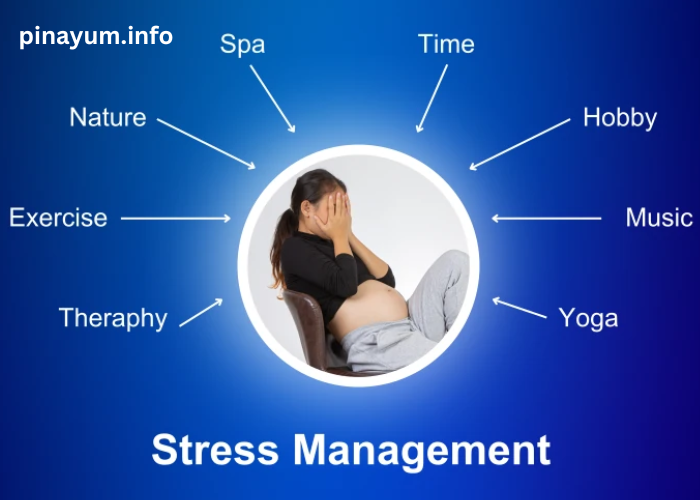In our fast-paced, achievement-driven world, sleep is often undervalued. Many people pride themselves on how little they need, trading precious hours of rest for work, study, or entertainment. However, mounting scientific evidence underscores the critical importance of sleep—not just for health, but also for productivity and overall quality of life.
Sleep is not a passive activity but an active process essential for physical recovery, mental restoration, and emotional well-being. The role it plays in our health and productivity is multifaceted and profound. This article delves into the science of sleep, its health benefits, its impact on productivity, and practical strategies to optimize your sleep for a healthier, more productive life.
The Science of Sleep
Sleep is a complex physiological process governed by two primary systems: the circadian rhythm and the sleep-wake homeostasis.
Circadian Rhythm
The circadian rhythm is your body’s internal clock, regulating the sleep-wake cycle over a 24-hour period. It is influenced by external factors such as light and darkness, signaling when it’s time to wake up or wind down.
Sleep-Wake Homeostasis
Sleep-wake homeostasis keeps track of your need for sleep. The longer you stay awake, the stronger your drive to sleep becomes. After a good night’s sleep, this pressure decreases, and the cycle begins anew.
Sleep Stages
During sleep, the body cycles through four stages:
- NREM Stage 1: Light sleep where you transition from wakefulness.
- NREM Stage 2: Deeper sleep where body temperature drops and heart rate slows.
- NREM Stage 3: Deep sleep essential for physical repair and growth.
- REM Sleep: Characterized by vivid dreams, REM sleep supports memory consolidation and cognitive function.
Each cycle lasts about 90 minutes, and the body typically completes 4–6 cycles per night.
The Role of Sleep in Health
Sleep is often called the “third pillar of health,” alongside diet and exercise. Here’s how it impacts various aspects of physical and mental well-being:
1. Physical Health
Restores and Repairs the Body
- During deep sleep, the body repairs tissues, builds muscle, and strengthens the immune system.
- Growth hormone, which promotes healing and cell regeneration, is released during this time.
Supports Heart Health
- Quality sleep regulates blood pressure and reduces the risk of heart disease.
- Insufficient sleep increases the likelihood of hypertension, stroke, and heart attacks.
Regulates Weight and Metabolism
- Sleep influences hunger hormones like leptin (which suppresses appetite) and ghrelin (which stimulates appetite).
- Sleep deprivation disrupts this balance, leading to overeating and weight gain.
Boosts Immune Function
- During sleep, the immune system produces cytokines, proteins that help combat infections and inflammation.
2. Mental and Emotional Health
Improves Brain Function
- Sleep is vital for cognitive processes such as memory consolidation, problem-solving, and creativity.
- Lack of sleep impairs focus, decision-making, and learning ability.
Regulates Emotions
- Sleep helps stabilize mood and process emotional experiences.
- Chronic sleep deprivation is linked to mood disorders like anxiety and depression.
Enhances Stress Resilience
- Adequate sleep lowers cortisol (the stress hormone), helping the body manage stress effectively.
The Role of Sleep in Productivity
Sleep and productivity are closely intertwined. While some may sacrifice rest for extra hours of work, this strategy often backfires. Here’s how sleep influences productivity:
1. Improves Focus and Attention
Sleep deprivation leads to lapses in attention and decreased concentration. Whether you’re working on a project or driving a car, inadequate sleep compromises your ability to stay focused.
2. Enhances Problem-Solving and Creativity
During REM sleep, the brain processes and organizes information, enabling creative problem-solving and innovation. Skipping sleep stifles this ability, hindering complex thinking.
3. Boosts Decision-Making
Sleep is critical for sound judgment and decision-making. Lack of sleep can lead to impulsive choices and poor risk assessment.
4. Increases Energy Levels
Quality sleep rejuvenates the body, providing sustained energy for the day ahead. Sleep-deprived individuals often rely on caffeine and sugar for energy, leading to crashes and decreased productivity.
5. Reduces Errors and Accidents
Fatigue is a major cause of workplace errors and accidents. Industries requiring high precision—like healthcare, transportation, and manufacturing—emphasize sleep because of its impact on performance and safety.
Consequences of Sleep Deprivation
The consequences of poor sleep go beyond tiredness. Chronic sleep deprivation has wide-ranging effects on both health and productivity:
- Physical Health Risks: Increased risk of obesity, diabetes, heart disease, and weakened immunity.
- Mental Health Issues: Higher likelihood of anxiety, depression, and burnout.
- Reduced Cognitive Function: Poor memory, reduced creativity, and slower reaction times.
- Workplace Performance: Decreased efficiency, higher absenteeism, and greater risk of errors.
Strategies to Optimize Sleep
Optimizing sleep starts with recognizing its importance and making it a priority. Here are practical strategies to improve your sleep quality:
1. Establish a Consistent Sleep Schedule
- Go to bed and wake up at the same time every day, even on weekends.
- Consistency reinforces your circadian rhythm and improves sleep quality.
2. Create a Relaxing Bedtime Routine
- Engage in calming activities like reading, meditation, or light stretching before bed.
- Avoid stimulating activities such as using electronic devices or watching intense shows.
3. Optimize Your Sleep Environment
- Comfortable Bedding: Invest in a supportive mattress and pillows.
- Temperature: Keep your room cool (60–67°F is optimal).
- Darkness: Use blackout curtains or an eye mask to block light.
- Quiet: Use earplugs or a white noise machine to eliminate disturbances.
4. Limit Stimulants and Alcohol
- Avoid caffeine and nicotine in the afternoon and evening.
- Limit alcohol consumption, as it disrupts REM sleep.
5. Exercise Regularly
- Regular physical activity promotes deeper sleep. Aim for at least 30 minutes of moderate exercise most days.
- Avoid vigorous exercise close to bedtime, as it may interfere with falling asleep.
6. Manage Stress
- Practice stress-reduction techniques such as mindfulness, yoga, or journaling.
- Address anxiety and worries through therapy or counseling if needed.
7. Monitor Screen Time
- Reduce exposure to screens (phones, tablets, TVs) at least an hour before bed.
- Use blue light-blocking glasses or apps to minimize disruption to your circadian rhythm.
8. Seek Professional Help
- If sleep problems persist despite lifestyle changes, consult a sleep specialist.
- Conditions like insomnia, sleep apnea, and restless leg syndrome require medical attention.
The Power of Naps
For those who can’t get a full night’s sleep, short naps can be a powerful productivity tool. A 10–20 minute nap can boost alertness, mood, and performance. Avoid longer naps, as they may lead to grogginess and disrupt nighttime sleep.
Conclusion
Sleep is an essential component of health and productivity, yet it is often overlooked or undervalued. The benefits of quality sleep extend to every aspect of life—physical health, mental well-being, and professional performance. By understanding the science of sleep and implementing strategies to improve sleep hygiene, you can unlock your full potential and lead a more balanced, productive, and fulfilling life.
Remember, sleep is not a luxury but a necessity. Prioritize it, and the rewards will be profound: sharper focus, better health, and enhanced productivity in every sphere of life.





